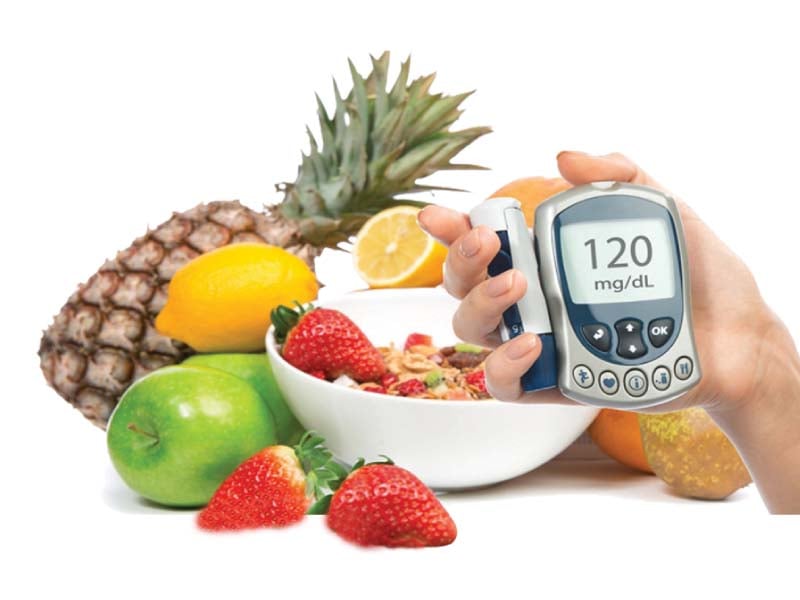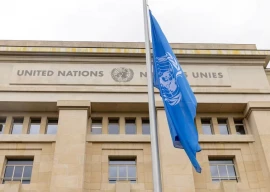
Nonetheless, a large number of people with diabetes still choose to fast during Ramadan despite the advice of their doctor and the permission received from religious authorities thus creating medical challenges for themselves.
Therefore, it is important for patients with diabetes who wish to fast during Ramadan to make the necessary preparations to engage in fasting as safely as possible, said Consultant Endocrinologist Dr Osama Ishtiaq.
He was speaking at a seminar “Roza aur Sehat” organised by Shifa International Hospital (SIH) to create awareness in diabetic patients intended to observe fasting without harming their blood glucose level.
Dr Osama said that fasting is very challenging for people living with diabetes, particularly patients with type-1 diabetes, who are dependent on insulin. Muslims with diabetes who wish to fast must plan thoroughly for a safe and healthy Ramazan. It is important to customise each patient’s management plan depending on his or her diet and lifestyle, medications, risk of hypoglycaemia, and glycaemic control, and to minimise the complications associated with fasting. In general, the risk of hypoglycaemia and hyperglycaemia in patients with type-2 diabetes is not too common, and it is associated with less severe consequences.
Dr Osama added that patients may be reluctant to self-monitor during Ramadan. Clinical experience suggests some patients may stop taking the medication altogether in order to observe the fast or because they feel changing the time of the medication may render it ineffective. Unwillingness to self-treat hypoglycaemia symptoms by breaking the fast may aggravate the problem. This represents a key challenge for patients with diabetes during Ramadan. Patients should monitor blood glucose regularly during the fast, especially in the early days. Continue taking your diabetes medicine as per advice of your doctor regarding dosage and timings. “Control your diabetes for two months prior to Ramadan bringing HbA1c to < 8 and continue the diet plan given by your doctor in Iftaar and Sahur," Dr Osama advised.
It is estimated that there are about 50 million Muslims with diabetes around the world who fast during the month of Ramadan each year. During the fast, Muslims are required to refrain from eating food, drinking, using medications, and smoking from dawn until sunset, with no restrictions on food or fluid intake between sunset and dawn. Islam exempts people from the duty of fasting if they are sick, or if fasting may affect their health, as fasting for patients with diabetes carries a risk of various complications, including hypoglycaemia, postprandial hyperglycaemia, and metabolic complications associated with dehydration.
SIH Senior Clinical Dietician Zainab Ghayyor advised patients to monitor their blood glucose regularly during the fast, especially in the early days. Watch out for eating too many sweets and keep portion sizes moderate. Overeating is the greatest risk. Continue taking your diabetes medicine, talk to your doctor regarding dosage and timings. If you experience hypoglycaemic symptoms, it is advisable to break the fast and make up for it after Ramadan.
She said that suhoor meal should contain a balance of whole grain sources of complex carbohydrates as well as some protein from lean sources of meat, fish and poultry, small amounts of heart healthy fats, limit added sugars this will slow the digestion and the feeling of fullness last as long as possible into the day. Also include fresh fruits, vegetables, and yoghurt in your meals. Limit the dates (khajoor) to two or three pieces. Avoid exercise during the day, and take rest when possible to help avoid lowering of blood glucose levels. Limit physical activity during fasting hours and be more active after sunset,” she suggested.
However, SIH Head of Religious Affairs Azmatullah Quraishi emphasised the importance of fasting in Islam and its positive and spiritual impacts. He said that there was no excuse for skipping fasting in minor diseases like flu or fever except those who are ill with no expectation of recovery, and those who are too old and are not able to fast. He said some health practices that do not affect fast such as use of injection (except nutritional injection), using asthmatic inhaler and donating blood, vomiting, and pouring medicines into the eyes or ears.
Published in The Express Tribune, May 11th, 2018.


1731329418-0/BeFunky-collage-(39)1731329418-0-165x106.webp)














COMMENTS
Comments are moderated and generally will be posted if they are on-topic and not abusive.
For more information, please see our Comments FAQ